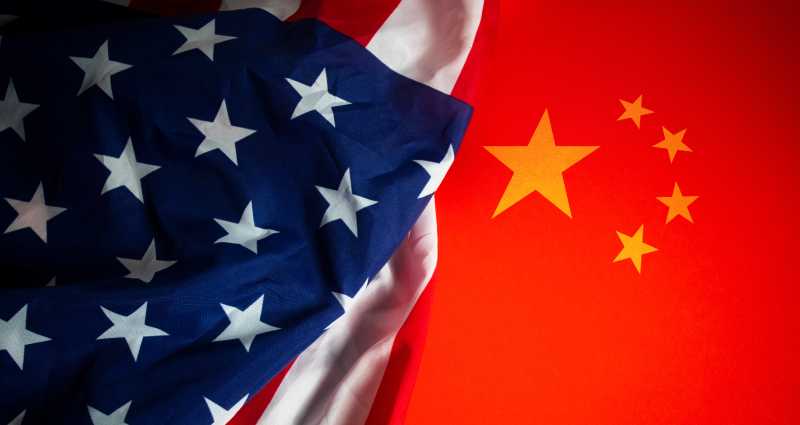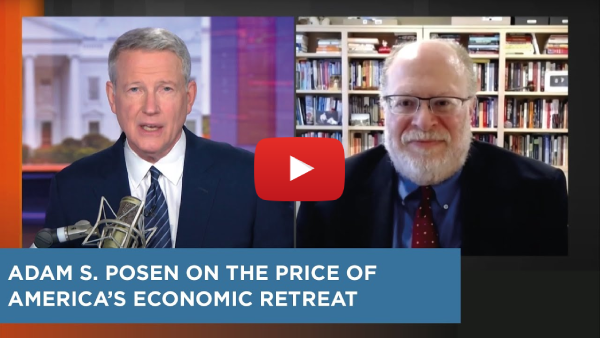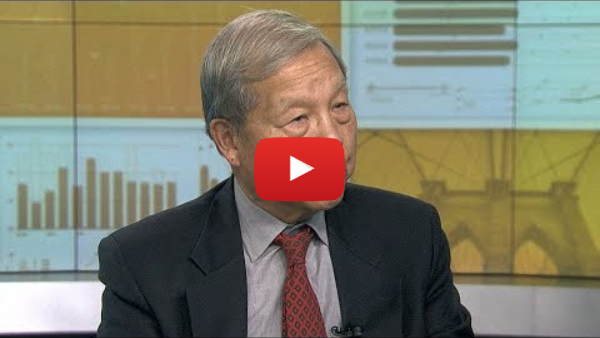Trump, Tariffs & Trade Wars: How Will Global US-China Policy Shape Business in 2026

The ever-evolving trade relationship between the United States and China continues to shape the global business landscape. With President Donald Trump back at the helm, US-China trade tensions are escalating, raising pressing concerns for industries worldwide. In 2026, new tariffs, strategic responses from China, and the broader economic ramifications are set to impact businesses at an unprecedented scale.
The Tariff Escalation and Its Economic Impact
As of May 2025, trade tensions between the US and China had intensified, with Trump imposing tariffs up to 145% on Chinese goods. In retaliation, China has imposed tariffs as high as 125% on US products. High-level talks are imminent in Switzerland, aiming to ease the trade war, though experts expect negotiations to take months.
In 2024, the US accounted for 20.6% of China's total goods exports, including re-exports via Hong Kong and other routes, according to analysts. The tariffs have significantly impacted the automotive sector, driving up production costs, especially for electric vehicles, and limiting consumer choices.
Expert Perspectives

Harry Broadman, a former U.S. trade negotiator and senior White House economic official, has long advocated for a coalition-based approach rather than unilateral tariffs. He argues that engaging allied nations in trade disputes would be far more effective than imposing broad-based tariffs that risk straining diplomatic and economic ties as highlighted in Forbes.

Mick Mulvaney, former Director of the Office of Management and Budget and Acting White House Chief of Staff, provides a unique perspective on Trump’s tariffs and trade wars. With experience in overseeing federal budgets and shaping economic policy under the Trump administration, he offers valuable insight into the fiscal and economic consequences of protectionist trade measures. His firsthand experience in managing the economic impact of tariffs sheds light on how such measures influence government revenue, business costs, and consumer prices as reported by Business Insider.
Impact on the Technology Sector
Another crucial sector affected is technology. Many US businesses depend on China for semiconductors, rare earth metals, and electronic components. The tariffs are expected to increase operational costs for American tech firms, potentially stalling innovation and growth in crucial industries such as artificial intelligence, quantum computing, and telecommunications.

Adam Posen, President of the Peterson Institute for International Economics, highlights that while national security is important, an overemphasis on tariffs and manufacturing restrictions might hinder long-term economic growth. He cautions that excessive reliance on trade restrictions may slow down technological advancements and economic progress as detailed in the Financial Times.
China’s Strategic Countermeasures
Despite facing increasing restrictions from the US, China remains committed to achieving self-sufficiency in high-tech industries. The 'Made in China 2025' initiative continues to drive its focus on artificial intelligence, robotics, and renewable energy.
A prime example of China’s progress is the recent rise of DeepSeek, an AI firm that has successfully developed models comparable to leading US counterparts without relying on high-performance chips subject to American export controls.
Additionally, China is reinforcing its trade alliances within the Regional Comprehensive Economic Partnership (RCEP) to lessen its dependence on US trade. This strategic move allows China to tap into other markets across Asia, fostering stronger regional cooperation and economic resilience.
Top Experts on China's Strategic Positioning

Yukon Huang: A senior associate at the Carnegie Asia Program and former World Bank director for China. He has extensively analysed the economic dynamics between China and the US.

Kurt Volker: Former U.S. Ambassador to NATO and expert on European and transatlantic security issues. While researching for The Center for European Policy Analysis (CEPA), he highlighted China’s strategic economic policies, noting its influence in key global markets.
China's Advancements in Tech Production
The Chinese government is heavily investing in domestic semiconductor production to reduce reliance on US exports. This strategic shift could see China emerging as a dominant player in the global chip manufacturing industry, posing a significant challenge to US companies such as Nvidia and Intel.

Dr. George Friedman, a distinguished geopolitical strategist, is an authority on technological transformations and their influence on global power dynamics, as explored in his book 'The Next Decade'. His expertise offers valuable insights into how China's advancements could redefine trade partnerships and economic alliances.
The Case for Trump’s Trade Policies
President Trump’s trade policies, despite criticism, are seen as crucial for American economic dominance. Tariffs on Chinese goods aim to cut foreign reliance and boost domestic production. This strategy is expected to create jobs in steel, automobiles, and technology. Supporters believe it strengthens competitiveness and secures vital supply chains.
Moreover, Trump's tough stance on trade has been viewed as a strategic effort to counter China’s aggressive economic expansion. His administration argues that previous trade policies allowed China to exploit intellectual property rights and engage in unfair trade practices, harming US businesses. The tariffs serve as leverage to demand greater reciprocity in trade relations, ensuring that American firms can compete on a level playing field. Proponents believe that, in the long term, these measures will strengthen the US economy and reinforce national security interests.
Implications for Global Business
The ongoing trade war creates uncertainty for multinational corporations and investors alike. Businesses are now facing key challenges, including supply chain disruptions, fluctuating market conditions, and heightened geopolitical risks.
Supply Chain Adjustments
With rising costs due to tariffs, companies are reevaluating their supply chain strategies. Some are considering shifting manufacturing operations to Southeast Asia, where more favourable trade agreements provide a buffer against US-China tensions. Vietnam, India, and Malaysia have emerged as key beneficiaries of this shift, attracting foreign direct investment from firms seeking stability.

Bonnie Glaser, managing director of the Indo-Pacific Program at the German Marshall Fund of the United States, has studied China's regional policies extensively. She emphasises that China's growing influence within the RCEP could shift global supply chains away from US dependencies, encouraging businesses to integrate with Asian markets rather than traditional Western alliances.
Market Volatility
Investors are increasingly wary of market fluctuations tied to US-China relations. The uncertainty surrounding trade policies has led many to explore alternative markets, such as Japan and European corporate debt. Analysts predict that global stock markets may experience continued volatility, prompting investors to seek safer asset classes and diversify their portfolios.

This uncertainty aligns with insights from Dr. Pippa Malmgren, a former economic advisor to President George W. Bush, who has stressed the importance of businesses adopting agile financial strategies to mitigate geopolitical risks. Pippa’s book 'Geopolitics for Investors' highlighted that major trade shifts often present new investment opportunities, particularly in technology and infrastructure sectors.
Strategic Planning for Businesses
For businesses operating in the US, China, and beyond, staying informed and agile is crucial. Companies must assess their exposure to tariffs and develop contingency plans to navigate the evolving trade landscape. Some strategies include:
- Exploring New Markets: Businesses should look towards emerging economies with favourable trade agreements and less exposure to US-China tensions.
- Diversifying Supply Chains: Reducing dependence on a single supplier or manufacturing hub can help companies manage risks associated with geopolitical shifts.
- Engaging with Policymakers: Businesses should actively engage in trade discussions and lobbying efforts to ensure that their interests are represented in evolving policies.
Looking Ahead: The Future of US-China Trade Relations
As 2026 unfolds, the global business community must brace for further developments in the US-China trade war. The potential for additional tariffs, countermeasures from China, and broader geopolitical shifts means that businesses must remain proactive in their planning.

Francis Fukuyama, a renowned political scientist and professor at Stanford University, has long discussed the role of democratic institutions in economic development. While he has not specifically addressed the 2026 trade war, his broader work, such as his book 'The Origins of Political Order', is incredibly helpful at investigating transparent governance, international trade laws, and long-term stability.
While trade restrictions may challenge some sectors, others will find opportunities in alternative markets and technological advancements. One thing is clear—businesses that prioritise adaptability, risk mitigation, and strategic foresight will be best positioned to thrive in an evolving economic landscape.
Book an Expert Speaker Today
Staying ahead of US-China trade policy is essential for businesses navigating the complexities of 2026 and beyond. Gain insights from US-China relations experts, and leading visionaries in the fields of business, economics, and geopolitics today.
To book one of our renowned speakers, contact The Motivational Speakers Agency today. Call us on 0207 0787 876 or fill in our online contact form to secure your speaker and gain expert insights for your next event.







